Weightlifting shoes are a non-negotiable for weight training: 6 pairs experts swear by for squatting and deadlifting
Big lifts need the big support these weightlifting shoes offer.

Amelia Yeomans
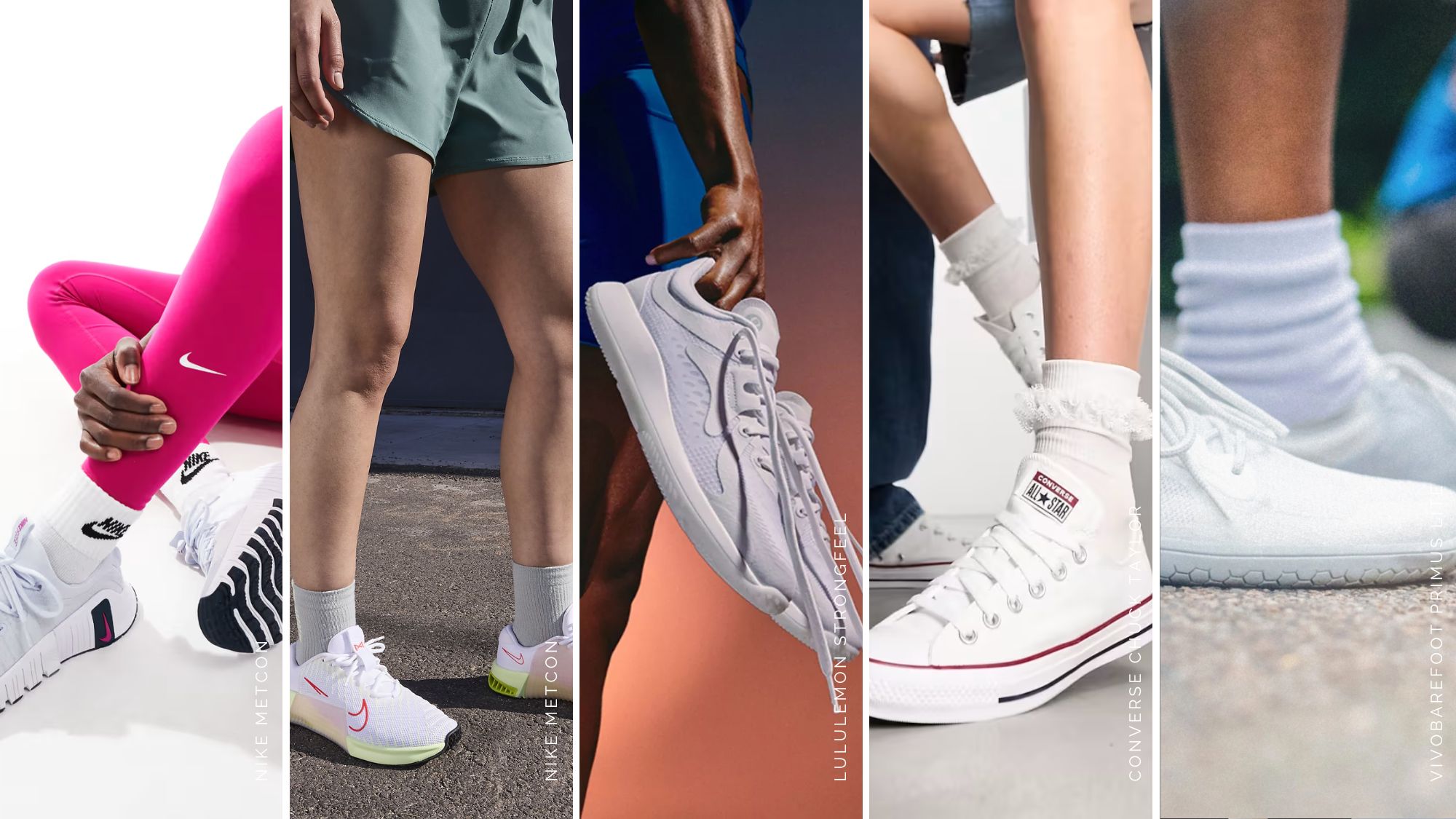
Celebrity news, beauty, fashion advice, and fascinating features, delivered straight to your inbox!
You are now subscribed
Your newsletter sign-up was successful
Investing in a pair of proper weightlifting shoes for your gym workouts is absolutely essential. FYI, the shoes that support your body best for strength training are a far cry from the best running trainers. When strength training, you'll need a sole that's flat and sturdy, unlike trainers designed for cardio which are often cushioned and bouncy.
"A flat, sturdy base is crucial for effective weightlifting because stability begins with your feet," say Danni and Mimi, founders of female strength training gym Lift Studio London. "If your feet are unstable during exercises like squats and deadlifts, that instability will translate throughout your entire body, compromising your form and potentially leading to injury.
"Running shoes, due to their cushioned and often curved design, can cause your weight to shift forward onto your toes, creating an unstable platform. Imagine trying to lift heavy weights while standing on a cushion—that's the feeling you get with running shoes, hindering your performance and increasing your risk of losing balance."
Research from Reebok shows that 71% of women are weight training in their running shoes, while 65% run in their gym trainers. Other studies show that squatting in running trainers reduced knee flexion—meaning you don't squat as deeply—and led to a less upright posture.
But where to start with so many options out there? Well, we've spoken to a range of experts to bring you their tried and true picks of the best weightlifting shoes on the market. Below, Ally Head, Marie Claire UK's Health and Sustainability editor, offers a controversial favourite that's seen her through strength training, freelance writer and fitness trainer Chloe Gray shares the shoes that have got her through her PB's, and weightlifting experts Danni and Mimi reveal their top brands. Plus, CrossFit athlete and winner of the Fittest Women In The UK 2022, Lucy Campbell, and Crossfit athlete, Aimee Cringle, shared their favourites too.
Don't miss our guides to the best cross training shoes and sustainable trainers, while you're here, as well as our edit of the best gym leggings to accompany you through your strength training workouts.
Best weightlifting shoes: Quick shopping links
- Best everyday weightlifting shoes: £129.99 at Nike
- Best investment weightlifting shoes: £180 at Adidas
- Best hybrid weightlifting shoes: £125 at Reebok
- Best flat weightlifting shoes: £60 at JD
- Best dynamic weightlifting shoes: £118 at Lululemon
Why are weightlifting shoes necessary?
"Choosing the right footwear is important for any sport, especially weightlifting, regardless of your experience level," say Danni and Mimi. "For any lower body exercise requiring a stable footing, specialised shoes are highly recommended. Appropriate footwear contributes significantly to proper form, allows for progressive overload, and minimises the risk of injury due to form breakdown." Weightlifting in particular is not recommended without appropriate footwear.
"Wearing weightlifting to perform certain lifts will help improve your ankle mobility and stability," explains The Gym Group's Master Trainer, Jenni Tardiff. "They have a raised heel and a firm sole that helps with force transfer to minimise energy loss to allow more power output during lifts.
"Weightlifting shoes are a great investment if you are serious about lifting, however flat soled trainers can work well too. Try to avoid running trainers with a soft spongy sole as they are designed to adsorb force and will reduce power output and stability when performing lifts," Tardiff says.
When should you wear weightlifting shoes?
"Wearing weightlifting shoes when performing squats will help improve with your depth and stability. You should wear your lifting shoes when performing Olympic lifts like clean and jerk to enhance your ankle mobility for a deeper catch and provide more force transfer for max power," says Tardiff.
How to find the best weightlifting shoes for you
"In my experience, weightlifting shoes tend to run a bit smaller in size as they are designed to fit snug for stability, so you might want to size up. Look at sport brands you already like for a training gear that are known for good durability and stability," says Tardiff.
"Another thing to consider is different heel heights. The most common height is around 0.75inches which is ideal height for ankle mobility. Try a few different brands on and see how they feel and fit on your feet then you can look at the reviews to help you decide on the right shoe."
When shopping, there are a few key things to look out for:
- The footbed: it's goodbye to cushioning and padding and hello to minimal insoles that allow you to feel grounded and spread your feet.
- The sole: Think flat shoes, with every corner making contact with the ground at all times (unlike running trainers that are often turned up at the toe). Look for a grippy base, too.
- The ankle: like in running, you've got to protect your ankles when you lift. Ensure your shoes feel sturdy around the joint but still allow enough room for free movement.
- The price: it goes without saying that you have to shop within your budget. Luckily, some of the best weightlifting shoes are surprisingly affordable.
6 best weightlifting shoes, according to experts
1. Best everyday weightlifting shoes
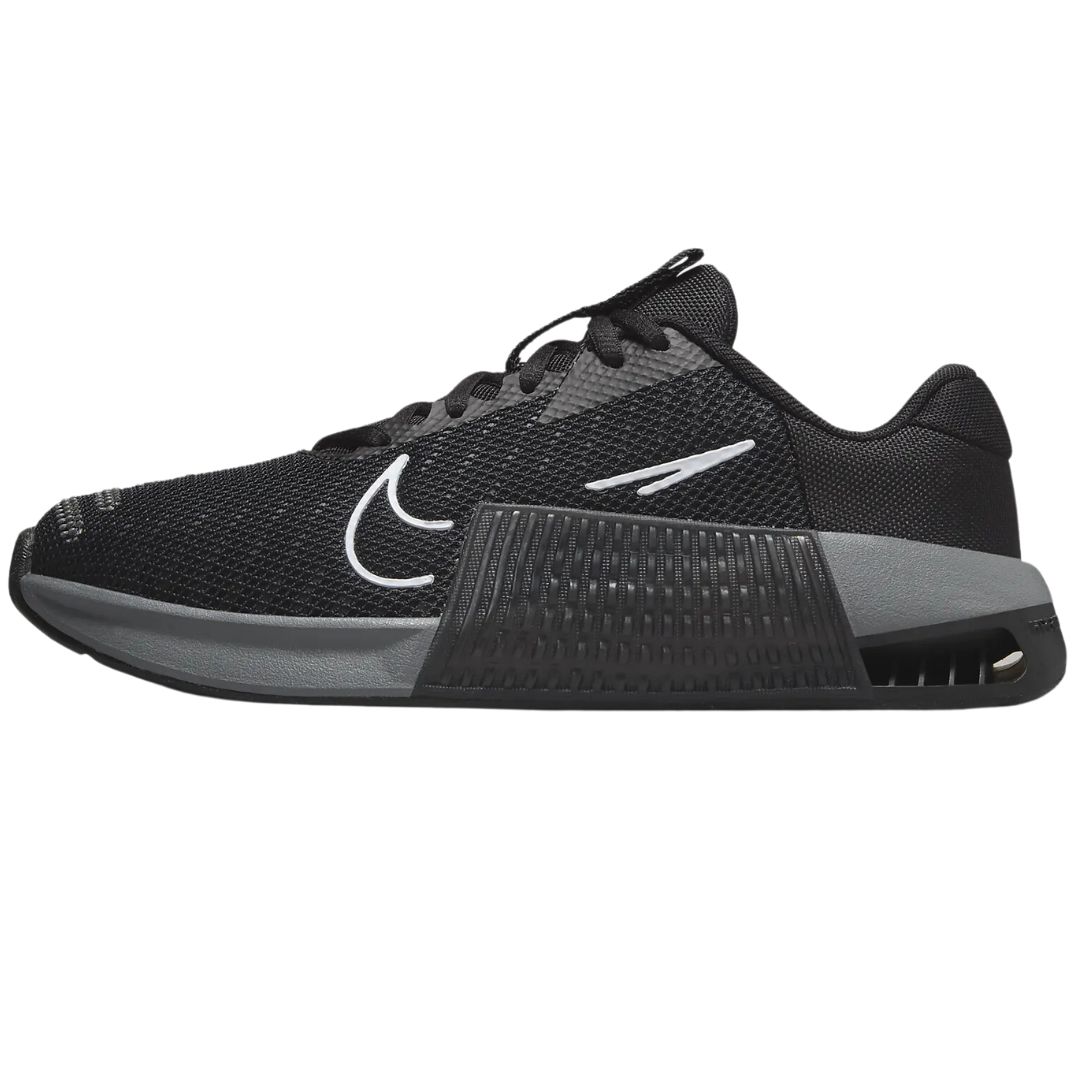
Nike Metcon 9
Reasons to buy
Reasons to avoid
Although she prefers raised-heel weightlifting shoes, Lucy Campbell, CrossFit athlete and winner of the Fittest Women In The World 2022, still squats in her Metcons. "I find they provide a good amount of stability which is great for when you have to lift weights in a workout," she says.
Danni and Mimi also recommend the Nike Metcon as they "include a removable insert in the heel to mimic the elevation of a dedicated weightlifting shoe. These shoes are popular in sports like CrossFit because they excel in both lifting and dynamic movements like burpees," they explain. "However, their highly ventilated design makes them unsuitable for outdoor use or even walking to the gym in the rain."
Campbell also notes that if you struggle with your mobility and have stiff ankles (poor dorsiflexion) a higher heeled shoe may suit you better as it will make it easier for you to get into the bottom of a squat.
2. Best investment weightlifting shoes
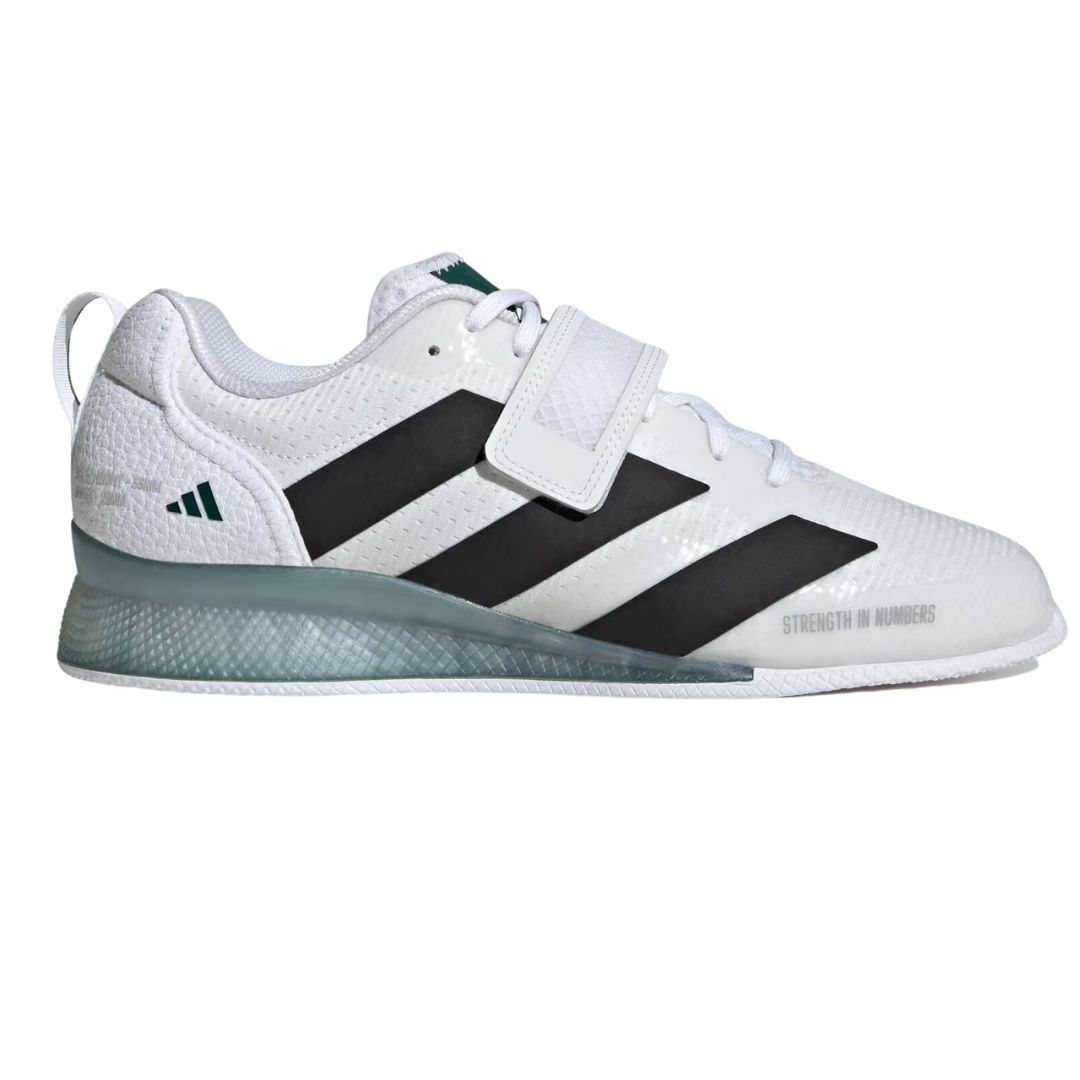
Adipower Weightlifting 3 Shoes
Reasons to buy
Reasons to avoid
"Specialised weightlifting shoes, like the Adidas Adipower or Nike Romaleos, are often favoured by Olympic weightlifters and powerlifters, particularly for squats," say Danni and Mimi. "These shoes feature a slight heel elevation, which can help some individuals achieve greater depth in their squats (allowing for more ankle range). They also have a very flat, inflexible sole, ideal for the focused demands of Olympic weightlifting and squats.
"However, these shoes aren't versatile; the heel elevation aren’t great for deadlifts, pushing your weight too far forward, and the lack of flexibility makes them uncomfortable for accessory exercises like lunges," they explain. If you're new to weightlifting or want a multi-tasking shoe, the Nike Metcon might be better.
3. Best hybrid weightlifting shoes
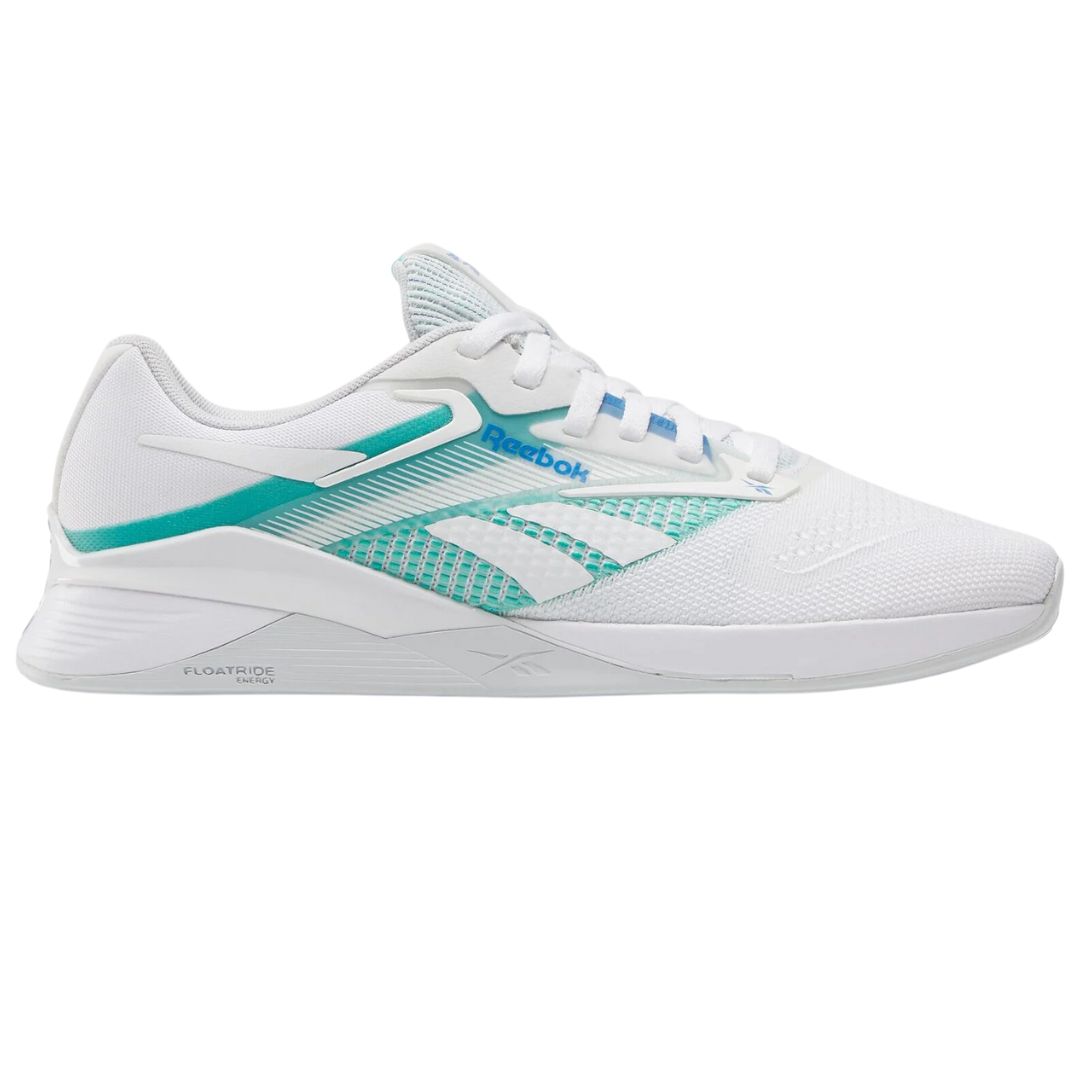
Reebok Nano
Reasons to buy
Reasons to avoid
Another hybrid shoe, the Nano is sturdy and flat enough to be used for weightlifting but also packs a little bounce in case you want to finish off your training with a sweaty HIIT circuit, says Gray. "Hybrid shoes, such as the Nike Metcon or Reebok Nano, offer a good balance of stability and versatility. They feature a flat sole with some arch support," explain Danni and Mimi, which makes them ideal for different types of weightlifting workout.
4. Best flat weightlifting shoes
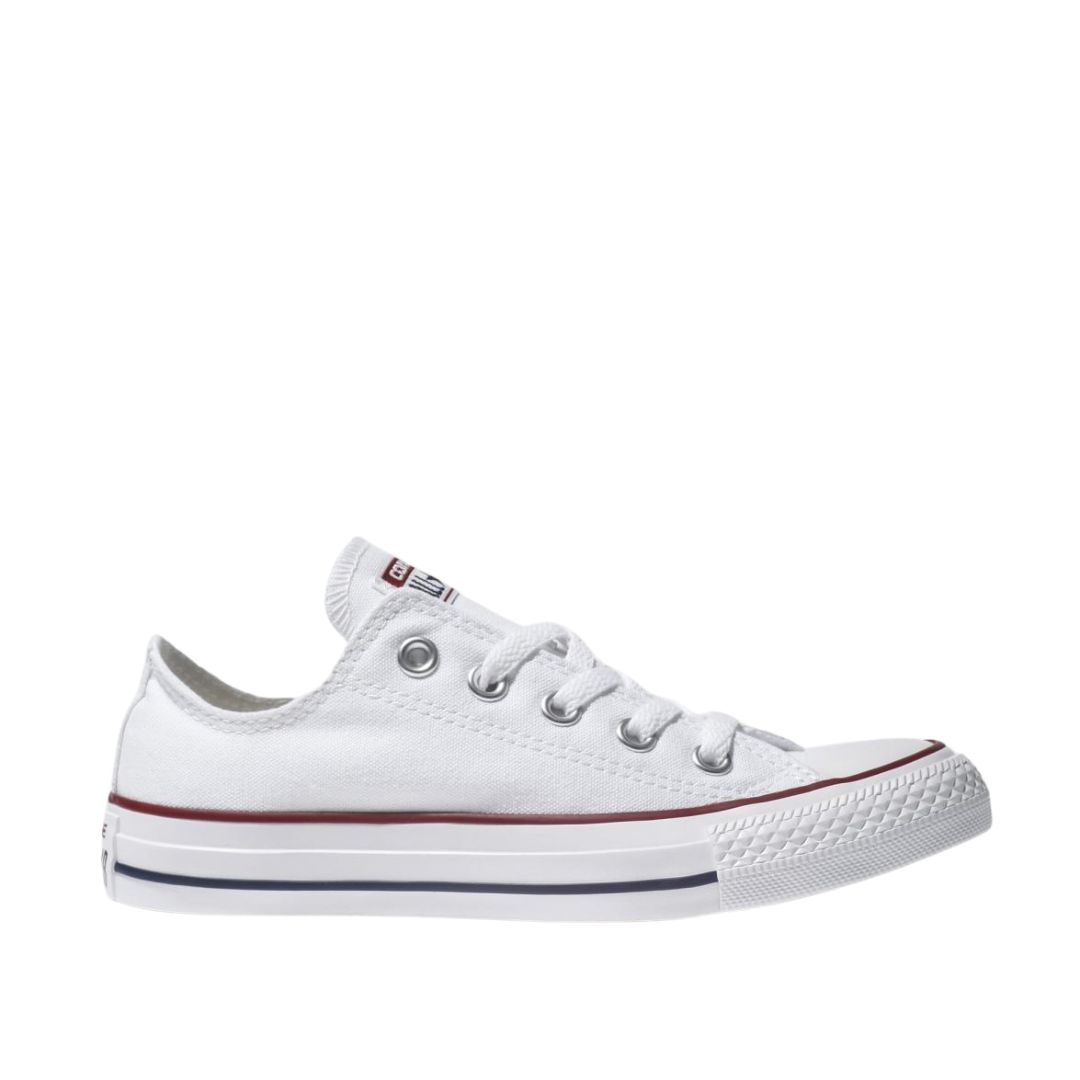
Converse Chuck Taylor All Star Ox
Reasons to buy
Reasons to avoid
If you're looking for a flat and supportive sole, you don't need to look much further than your beloved Converse, says Health Editor Ally Head. Danni and Mimi agree that "flat plimsolls offer a simple, flat base for lifting and can be worn casually as well. While they lack the specialised features of dedicated lifting shoes, they provide a stable platform for basic lifts."
And there's a number of reasons why Head rates them: "they're aesthetically universal—that is, you can wear them everywhere and aren't spending loads on a shoe option you will only wear to workout in. They last forever (I've had mine for near ten years), and they are supportive for deadlifts, barbell hip thrusts and so on."
But be warned, they are only suitable for weightlifting. "They're not great for anything other than your day to day activities and weightlifting—don't, I repeat, don't!—wear them for HIIT exercises, as you'll give yourself shin splints pretty pronto," says Head.
5. Best dynamic weightlifting shoes
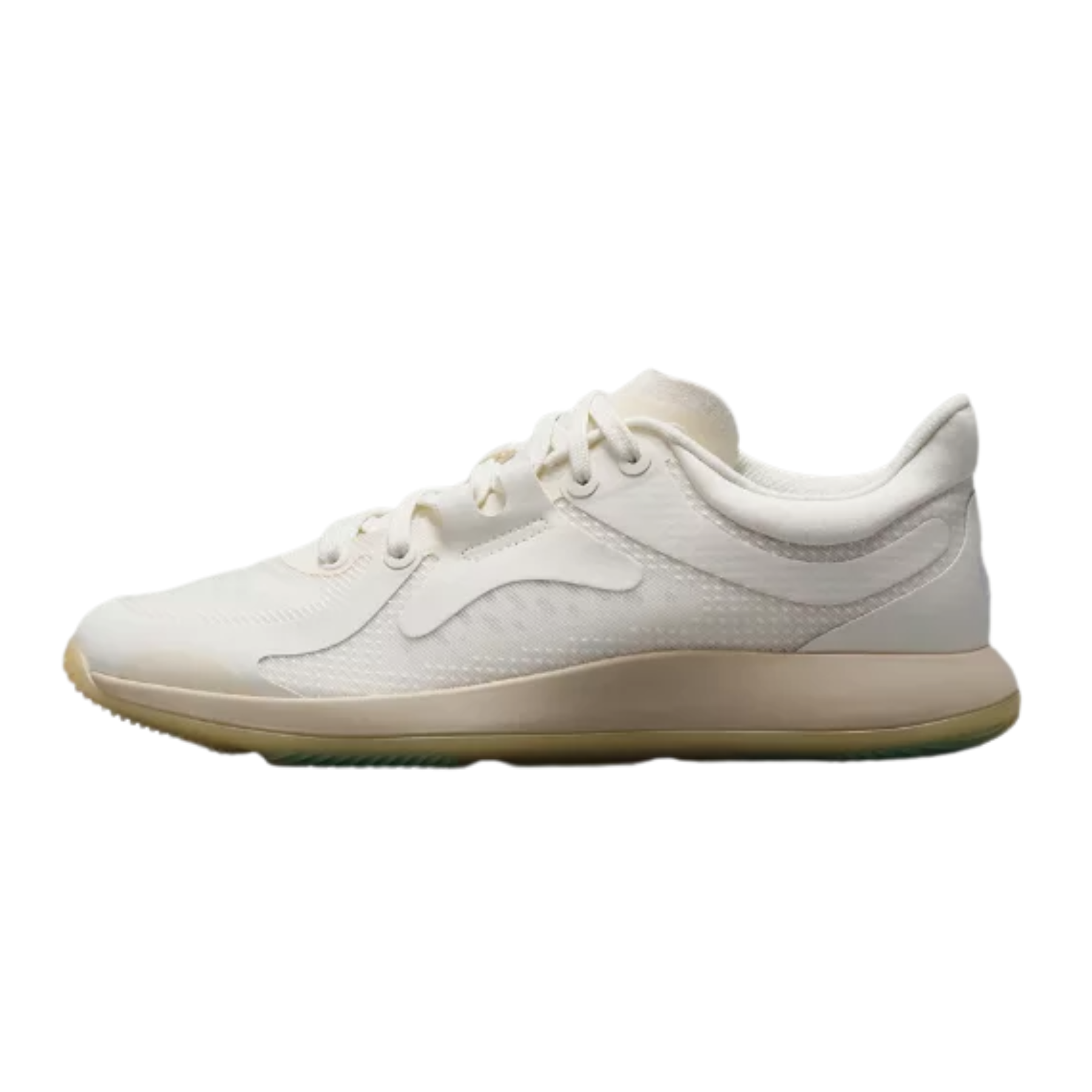
Lululemon Strongfeel Training Shoe
Reasons to buy
Reasons to avoid
When it comes to Lululemon's Strongfeel, the shoe is designed speficially for, well, feeling strong—and that involves lifting weights. Since trying them, Chloe Gray wears nothing else to the gym on leg day.
"The flat base gives loads of room for foot spreading but doesn't feel too hard under foot, which is nicer if you're spending a while in the gym. They look good for day-to-day wear too, and are sturdy enough to be used for functional fitness that includes explosive moves," she says. "The only downside is that they're not exactly cheap—but relative to other lifting shoes and cost-per-wear, they are worth it."
6. Best 'barefoot' weightlifting shoes
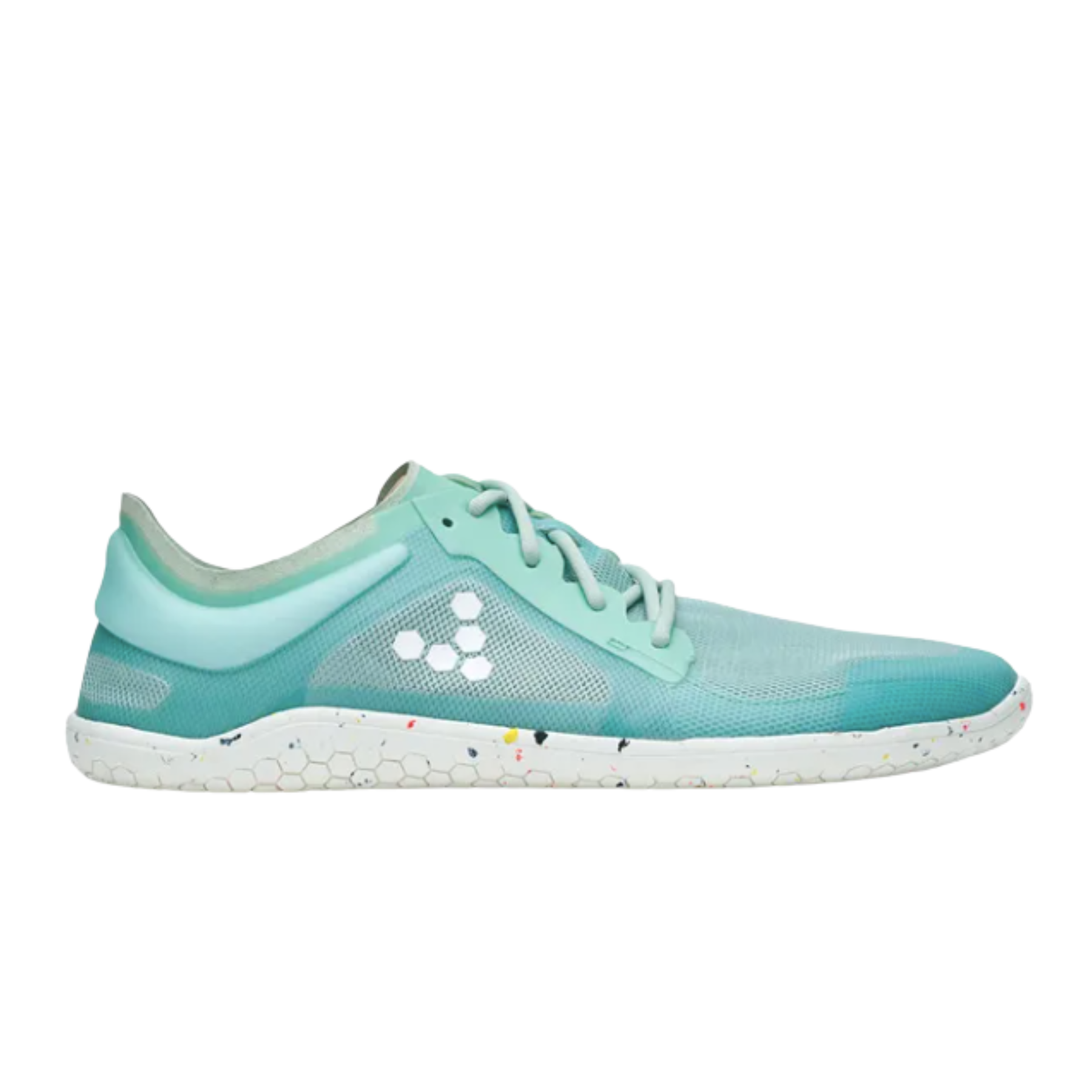
VivoBarefoot Primus Lite II
Reasons to buy
Reasons to avoid
If you feel weird about taking your shoes off in the gym for barefoot training (look, we get it) then try these shoes that are designed to not feel like shoes. They're foot-shaped, rather than shoe shaped, so your feet can actually spread very thin to allow you to get feedback from the floor below.
"Eco-friendly credentials and a 4mm sole really puts you back in touch with nature," says Gray. "They're also incredibly flexible shoes (you can roll them into a ball) which makes transporting them easy but, most importantly, means they'll travel with you wherever and however you want to move. The USP of this show is that everything about it is different to what we are used to. That's good in the long run, but does take some getting used to."
Are weightlifting shoes better than barefoot?
"Lifting barefoot is another option, and in fact, observing someone's bare feet during exercise can provide valuable insights into their form," explain Danni and Mimi. "However, many commercial gyms prohibit training without shoes, so it's not always a practical choice." If you're in a pinch, barefoot training can definitely work, but the experts suggest investing in appropriate footwear for best results.
Celebrity news, beauty, fashion advice, and fascinating features, delivered straight to your inbox!

Chloe Gray is a freelance journalist who writes and talks about health, fitness, and wellbeing through a feminist lens. She was part of the launch team for Stylist magazine's fitness brand, Strong Women, and has written for i news, Women's Health, Red magazine, Good Housekeeping, Refinery29, and more. She's all about building mental and physical strength, eating delicious food that fuels you well, and making the fitness industry more accessible and enjoyable. She's also a qualified fitness trainer and research nerd, so you can be sure everything you read is backed by proper science.
- Amelia YeomansJunior Shopping Editor